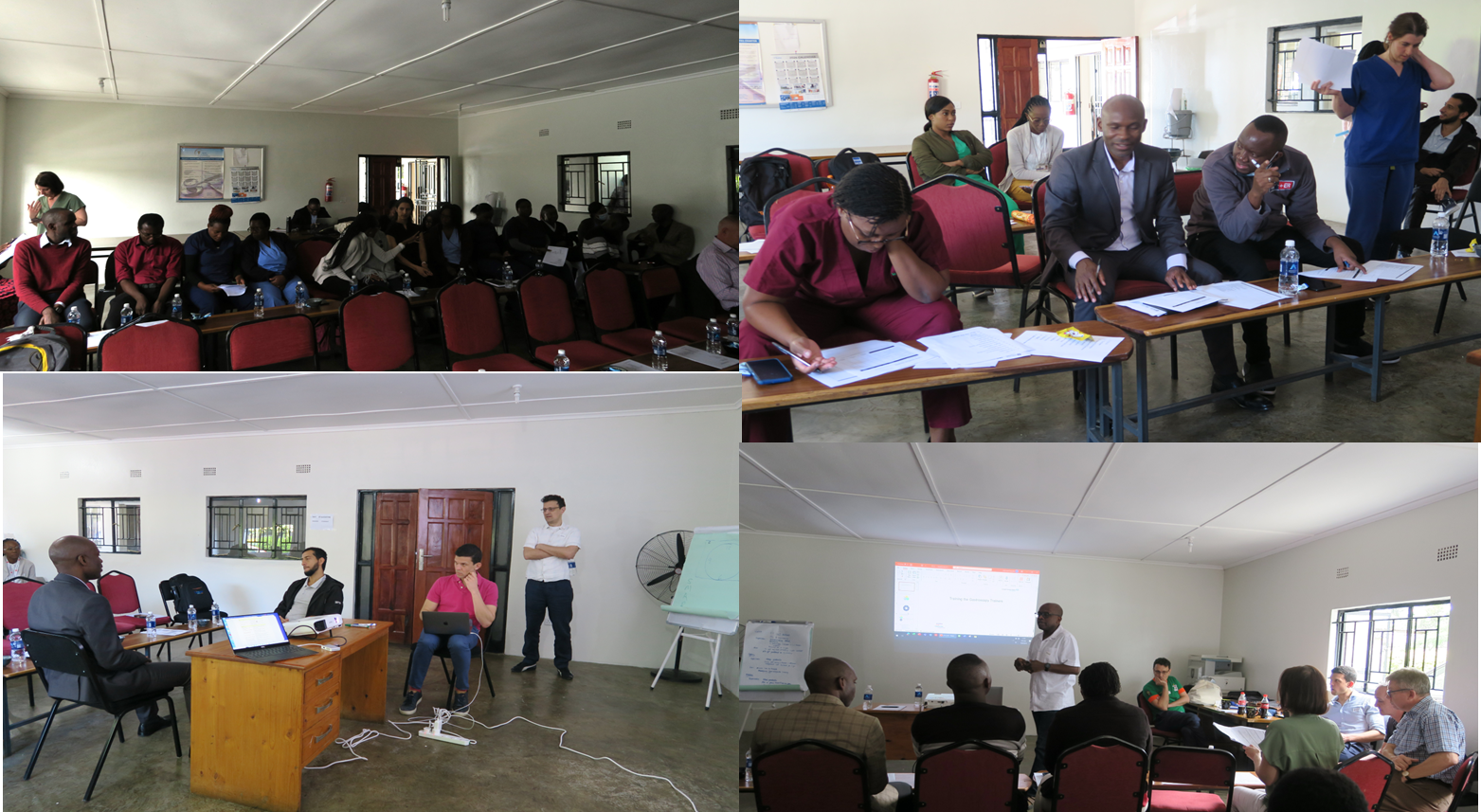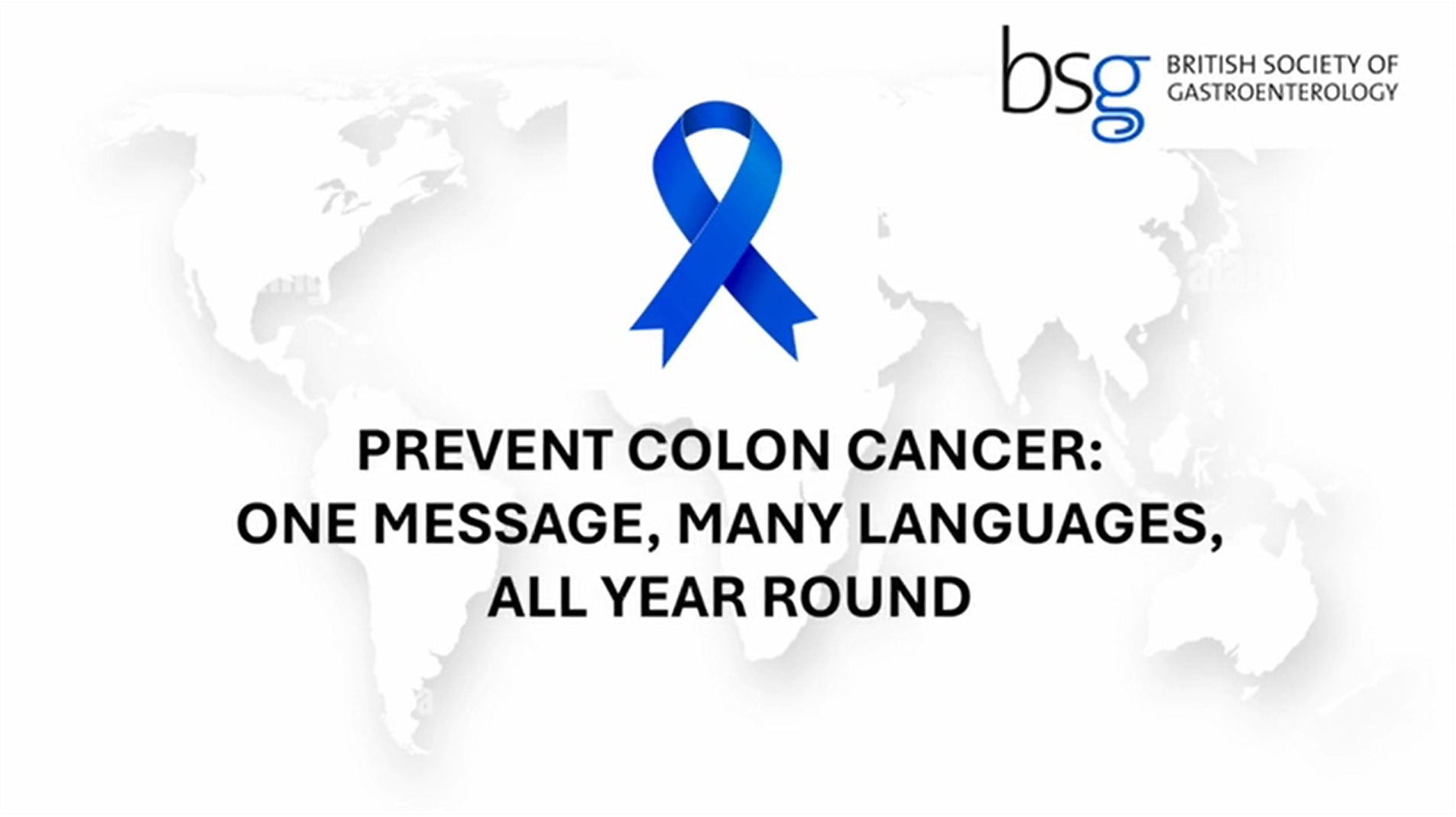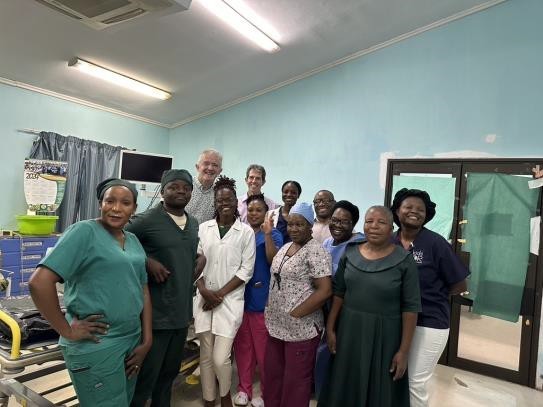
International Committee Project: Establishing a self-sufficient upper gastrointestinal endoscopy training programme in Lusaka, Zambia
International Endoscopy Training Week Report - Lusaka, Zambia 15-19 April 2024 - Dr Duncan Napier
Zambia is a low-income country in sub-Saharan Africa with a population of 18 million. Access to healthcare is limited, particularly to specialist services despite a high burden of gastrointestinal diseases. There is strong evidence for rising incidence of GI cancers in this region. A recent survey highlighted the lack of endoscopic provision in Zambia and three other countries, with endoscopy capacity in these countries equating to 0.12 endoscopists, 0.12 gastroscopes and 0.09 colonoscopes per 100 000 population.
A postgraduate MMed programme in gastroenterology has recently been established within the University of Zambia School of Medicine with the aim of increasing the number of qualified gastroenterologists working within Zambia to meet some of this need. An element of the programme is to provide endoscopy training with hands on apprenticeship type training akin to the UK. No formal basic skills programme currently exists and current trainers have had no formal teaching about training methods in endoscopy either. Application for a BSG international grant provided a unique opportunity to establish a self-sufficient endoscopy training programme within the newly created MMed programme.
Following the successful application for a BSG international grant; a working group (Professor Paul Kelly, Dr John Louis-Auguste, Dr Phoebe Hodges, Dr Duncan Napier, Dr David Nylander, SN Paul Watson and SN Abelyn Datlag) was established to create a bespoke endoscopy training week in Lusaka, Zambia.
After consultation with local partners, a timetable was arranged that best suited local needs and maximised the training opportunities. This compromised of a train the gastroscopy trainer's (TGT) course to impart teaching skills to the local faculty to provide ongoing gastroscopy training to the new endoscopists. The initial plan was to then run a basic skills course in gastroscopy however the local faculty felt that basic skills in colonoscopy would initially be more invaluable. Local endoscopists would hugely benefit from upskilling in colonoscopy due to the rising need but limited training opportunities. As such a basic skills course in colonoscopy was timetabled at the end of the week, utilising skills acquired in the TGT for the more experienced colonoscopists, who were observing and assisting with the basic skills course.
A formal timetable was agreed with a summary agenda below.
| Sunday 14th | Monday 15th | Tuesday 16th | Wednesday 17th | Thursday 18th | Friday 19th | |
| AM | Arrival | - Visit University Teaching Hospital - Visit Levy Mwanawasa Hospital - Return to St Augustine Clinic - TGT (Introductions) - Course Objectives - KPIs | - Model work - Gastroscopy x 6 (TGT) | Basic Skills Colonoscopy Course - Theory - Classroom work - Model work | Basic Skills Colonoscopy Course - 3 colons | Basic skills Colonoscopy |
| PM | - Team Meeting - Southern Sun Ridgeway | - TGT Theory /Model work | - Gastroscopy x 6 (TGT) | Basic Skills Colonoscopy Course - 3 colons | Basic Skills Colonoscopy Course - 3 colons | Course - Conclusions - Debrief |
A detailed timetable was then created utilising the UK models for training (embedded) with a 2-day train the gastroscopy trainers course and a 3-day basic skills colonoscopy course.
Whilst the primary objective was to deliver a self-sufficient training programme, all the faculty were very alert to providing a training week that fulfilled the needs of the local endoscopy workforce. Three of the faculty (Prof Kelly, Dr Hodges and Dr Louis-Auguste) had considerable experience working in Lusaka with a crucial understanding of the constraints of working in a less developed healthcare system and the nuances of the local health system. This understanding allowed for a much more flexible and adaptive approach to the planning phase; carried out via TEAMS in five separate meetings over six months to produce a programme best suited to the local demand. From previous experience of similar international courses, Dr Nylander highlighted the crucial importance of expert endoscopy nurse involvement in such courses to provide teaching and support to nursing colleagues.
To best appreciate the local health care environment, the first hours of the course involved a tour of the endoscopy facilities within Lusaka, including University Teaching Hospital Lusaka, Levy Mwanawasa University Teaching Hospital and the St Augustine Clinic.
 Endoscopy Department at University Teaching Hospital Lusaka
Endoscopy Department at University Teaching Hospital Lusaka
The 5-day course was delivered at the St Augustine Clinic, a research unit with endoscopy facilities due to its size and additional rooms to allow for model work, lecture teaching and reliability of electricity supply. The first session was an ice-breaking session with the primary aim of understanding delegates knowledge of endoscopy and training. Experience, course objectives and aims for all delegates were all explored on the first morning.
Train the Gastroscopy Trainers Course
Four endoscopy trainers were identified to attend the TGT who provide the majority of gastroscopy training at UTH. All the gastroenterology trainees on the MMed were invited to attend as either trainees or observers and all the endoscopy nurses from UTH were invited to attend. Paediatric gastroenterology trainees and interested trainees in internal medicine were also invited to observe. Trainers were asked to complete a pre-course questionnaire to ascertain their level of understanding of training in endoscopy. A mixture of didactic, interactive and role-play sessions were then utilised in the first session and all delegates and observers were very quickly at ease; and the first day proved to be a very interactive day.

Trainers were then put to work, conducting a training session initially on models and subsequently on patients. Each training episode was deconstructed; trainers and trainees were debriefed and given the opportunity to focus on the training episode itself, drawing out theory and putting this into practice. A highlight for all trainers and trainees was the adoption of simple and replicable instructions throughout (tip up, tip down etc).

Basic Skills in Colonoscopy Course
Colonoscopy is increasing in demand, but there are few trainers and very limited opportunities to develop expertise. The basic skills colonoscopy course was aimed at two of the recent MMed graduates who were with increasing frequency being required to perform colonoscopy. The trainees from the basic skills course were invited to observe although hands-on time was directed primarily to the two delegates.
The basic skills course was a combination of interactive lectures, hands on model work and lots of work on loop resolution with tactile feedback (no scope guide). The model work was hugely successful as trainees hugely valued observing loops in real time by exposing the colon, as scope guide was not available.

Hands on experience with colonoscopy trainers was hugely invaluable. Particular focus was made on two aspects, firstly delivering training sessions to maximise learning opportunities for the endoscopist but secondly demonstrating an optimal training episode to consolidate teaching in the TGT (with observers asked to focus additionally on elements of the training episode).

Key Themes
During both the TGT and basic skills course, a few key themes were identified. Firstly, the WHO checklist was not routinely used in practice and at the request of Prof Kelly, the importance of this was discussed one day one. This was re-iterated through all five days of the course and the endoscopy nurses were empowered to ensure this was carried out prior to each procedure. Secondly, safe sedation practices were not routinely used, and all patients were given the same dose of combination sedation. A teaching session on safe sedation was therefore highlighted earlier on in the course; with emphasis placed on sequential, graded safe sedation. Finally, the endoscopy nurses were an integral part of delivering a successful course. SN Paul Watson and SN Abelyn Datlag led dedicated sessions with the local endoscopy nursing team and very rapidly established an incredible rapport. Endoscopic knowledge and non-endoscopic team skills were imparted in both directions, with invaluable knowledge shared across all teams in a strictly non-hierarchical fashion; acknowledging that safety was key.

Outcomes / Feedback
Both training courses were well received with highly complementary feedback. Pre and post course questionnaires demonstrated an improvement in training skills for those undertaking the TGT course. Feedback from the basic skills course was very positive with encouraging scores suggesting that the feedback will improve future practice.
Train the gastroscopy trainers’ course (pre/post course questionnaires)
| Pre | Post | |
| Rate skills as endoscopy trainer / 10 (mean) | 6.3 | 7.8 |
| Confidence as endoscopy trainer / 10 (mean) | 7 | 8.2 |
| Aware of smart objectives (Yes/3) | 6.6 | 10 |
| Confidence in giving performance enhancing feedback /10 (mean) | 7 | 7.8 |
| Competence in giving performance enhancing feedback / 10 (mean) | 6.7 | 7.7 |
Basic skills in colonoscopy course feedback
Curriculum item | Usefulness/relevance | Will change my practice |
Discussion: consent | 10 | 9.8 |
Discussion: sedation | 10 | 9.5 |
Discussion: indications and contraindications | 9.6 | 9.7 |
Discussion: risks and complications | 9.6 | 9.5 |
Practical: scope handling | 9.8 | 10 |
Practical: loops | 10 | 9.8 |
Discussion: loops | 9.8 | 9.8 |
Practical: room set-up | 9.4 | 9.5 |
Practical: model work | 9.6 | 9.8 |
Discussion: diathermy | 8.4 | 9.3 |
Live cases | 9.6 | 9.8 |
Faculty feedback on live cases | 10 | 10 |
Conclusions
The primary objectives of the course were met; providing a basic-skills and train the trainers’ course with the aim to embed this into the MMed programme to ensure this becomes a self-sufficient programme. WhatsApp mentoring groups have been established with dates timetabled to provide remote training and assess progress. The course also highlighted areas amenable to immediate change, such as utilising the WHO checklist and ensuring safe levels of sedation were given. Further outcome data is awaited from the team in Lusaka to provide evidence of the benefit of the endoscopy training week over the short to medium term. Finally, the team are hoping to consolidate the training week with a further visit within 18 months to ensure the programme becomes embedded and sustainable in the long-term allowing for high quality training as the endoscopy workforce expands.


BSG International: Colon Cancer Screening Awareness
The BSG International Section is proud to raise awareness about colorectal cancer through a multilingual video featuring our members from around the world. Early detection saves lives—let’s spread the message far and wide!

International Grant Report: Malawi Endoscopy training visit report
After arriving in Lilongwe, we visited KCH and met the local Endoscopy team including Mr Chipilimo and the two senior local trainees who had both undertaken <5 endoscopies previously but had been identified by senior clinicians for Foundation endoscopy training at the unit. We spoke with them regarding their current work, resources and requirements and donated endoscopic equipment from Glasgow.

International Grant: Malawi Hepatology Training Course Report
With the generous support of a grant from the British Society of Gastroenterology we organized a training conference: the Third Conference on Liver Disease in Malawi. We provided travel and accommodation for delegates from all over Malawi, ranging from Karonga in the far north to Chikwawa in the South